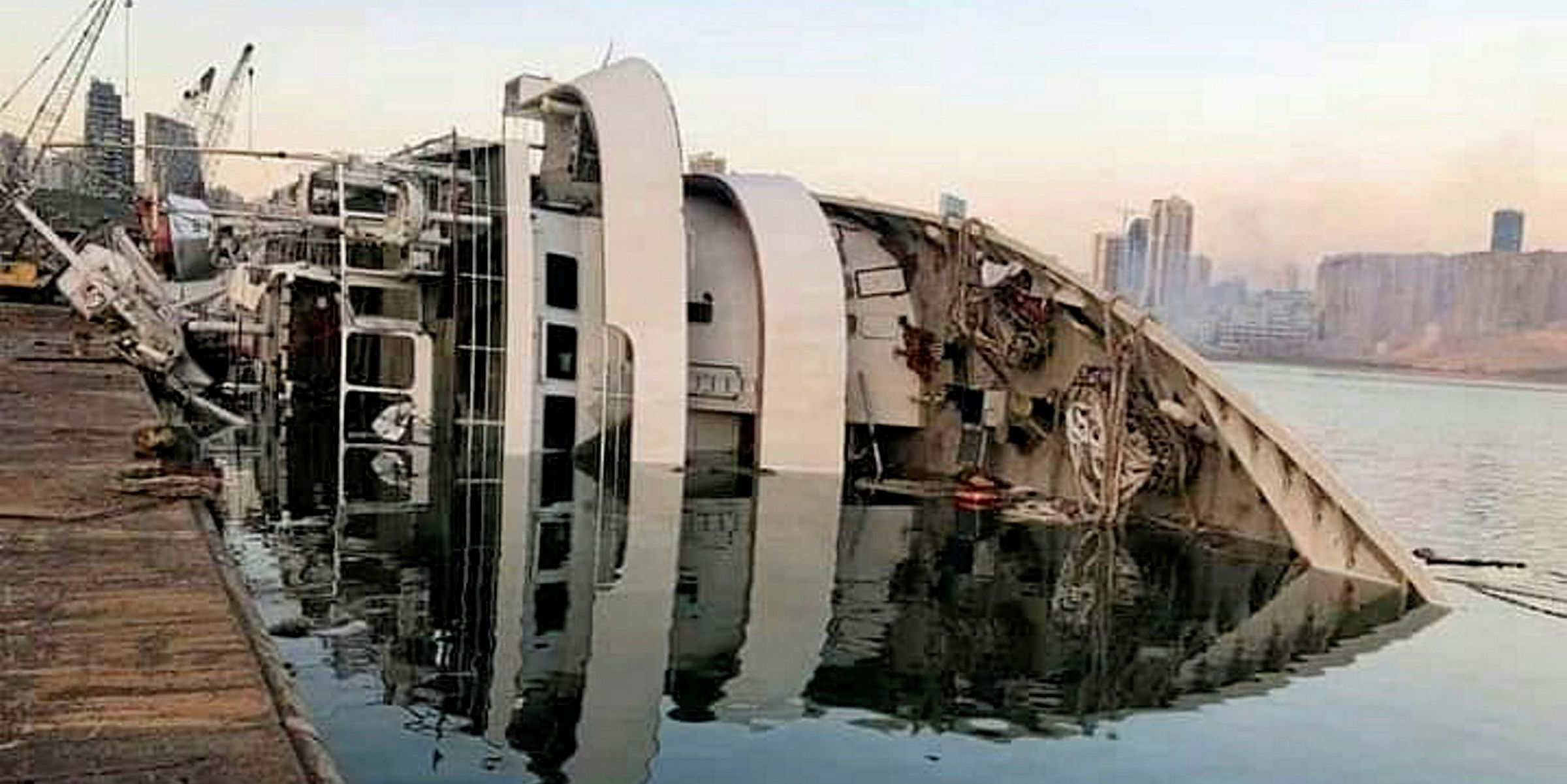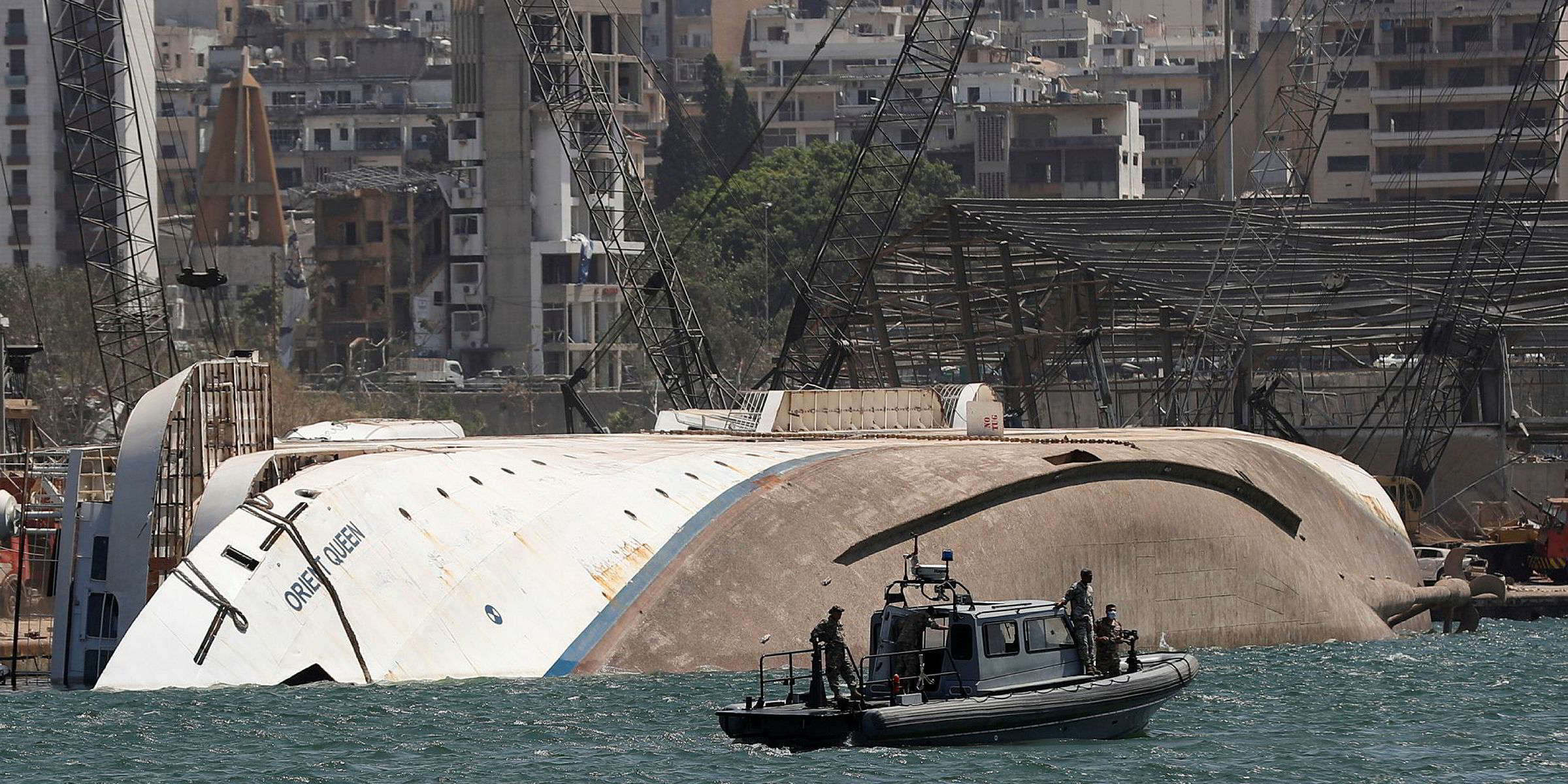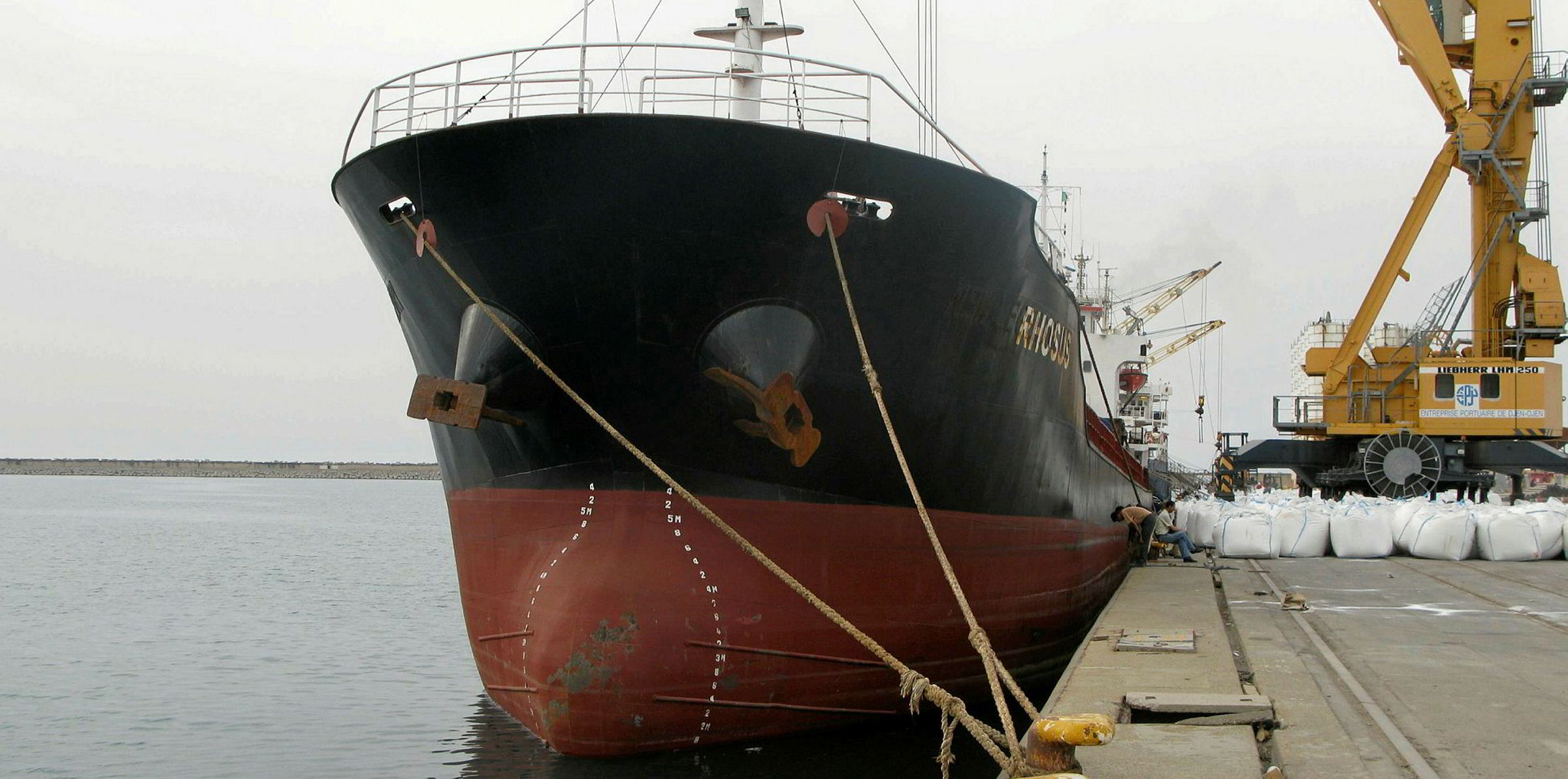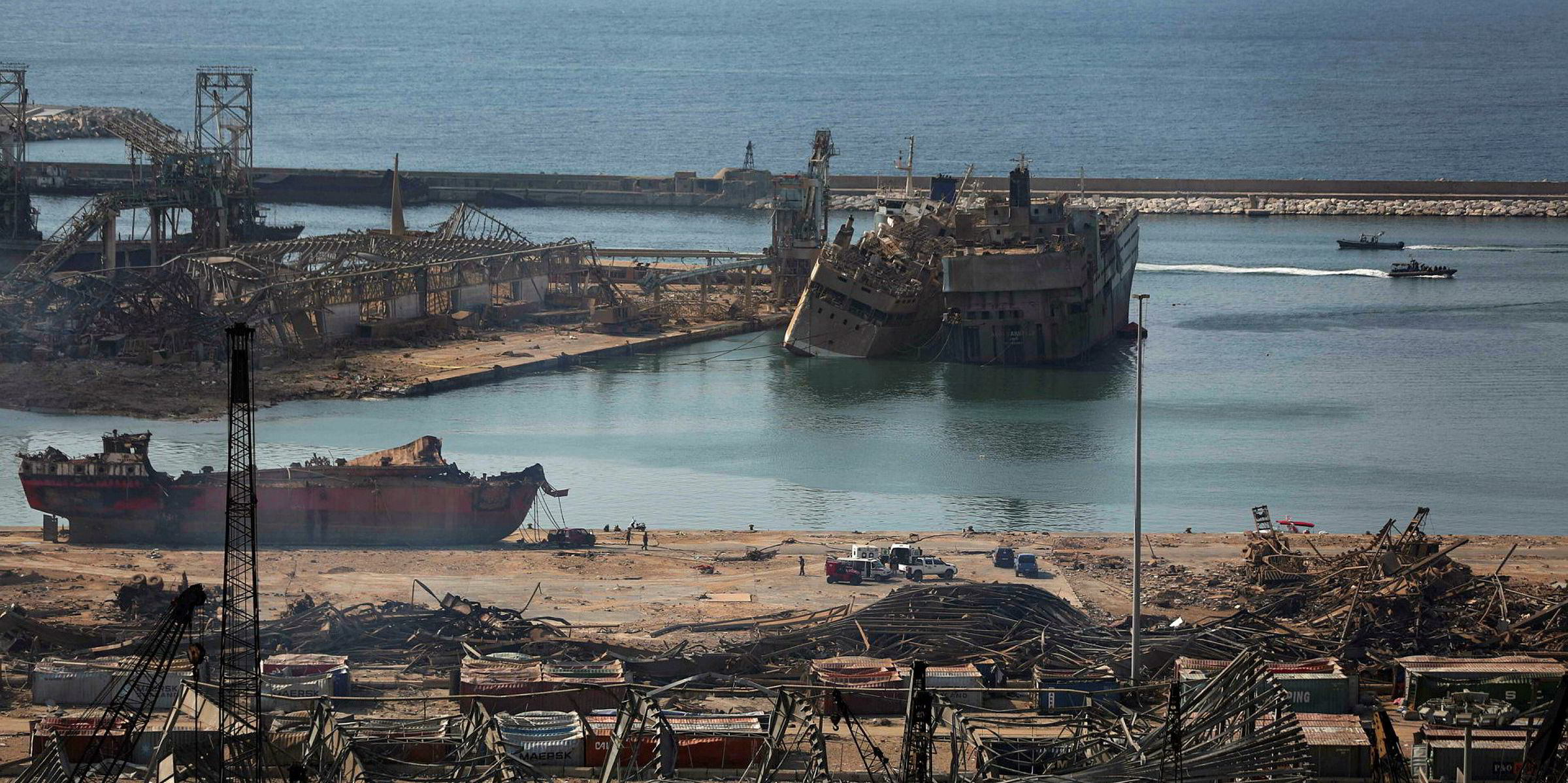Lebanon's Abou Merhi Group said it is building a lawsuit over the mishandling of the cargo of ammonium nitrate that led to last week’s catastrophic blast at the port of Beirut.
Ahmad Abou Merhi, a member of the family that owns the company and a director of cruise line Abou Merhi Cruises, described the incident to TradeWinds as a “crime against humanity”.
The Beirut company aims to take legal action targeting “incompetence and irresponsibility of every authority and governmental figure”, he said.
Abou Merhi Group’s 7,500-gt cruiseship Orient Queen (built 1989), moored at a pier opposite the blast epicentre, was slammed against the structure, ruptured its hull and subsequently capsized.
“The loss of the Orient Queen is secondary to us at Abou Merhi Cruises, as we sadly lost the lives of two crew members to this catastrophe,” Abou Merhi said.
The cruise operator has named the dead as Heilemariam Reta from Ethiopia and Mustafa Airout from Syria.
“We have several crew members in critical yet constant condition, and we have been working very closely with local hospitals and embassies to provide everything needed to ensure their recovery and safety,” Abou Merhi said.
He added that Abou Merhi Cruises had cancelled its summer season due to the pandemic, and the ship had only a small team on board for maintenance and minimum safe manning purposes.
“We are grateful that the vessel was only safely manned, otherwise our tragic losses would have multiplied.”
The Abou Merhi Group head office, located 3 km (1.9 miles) from the port, was “shattered to the ground”, which Abou Merhi said showed the magnitude of the explosion.
“We are fortunate to have had the last member of the team leave 15 minutes prior to the explosion, as the incident happened a little past 6pm.”
'Devastating, absolutely devastating'

Commenting on the impending lawsuit, Abou Merhi said he was shocked that that such a dangerous cargo was just left sitting in the port for so long.
“Beirut has been our hub port since the acquisition of the Orient Queen in 2012. Little did we know that we have been embarking and disembarking passengers a few metres away from 2,750 tonnes of explosive materials,” he said.
Abou Merhi said the company had cancelled cruise operations to protect passengers and crew during the pandemic, and was scheduled to lay up the ship at its home port in Beirut.
“Who would have expected her to be attacked and sunk while berthed in her hometown? Devastating, absolutely devastating,” he said.
“This is not a crime against us as a company — this is a crime against humanity.”
Abou Merhi said it was too soon for the company to determine its future course.
“As we speak, every day pours into the following and we are acting as things develop. We continue to mourn everyone we lost as a company and as a country, and we are not yet ready to set a plan for the future. We may not have a plan yet, but Beirut will rise. Beirut always does.”
The explosion on Tuesday last week, which destroyed almost everything in the port and the surrounding area up to a radius of 10 km, was described by specialists at the University of Sheffield as "unquestionably one of the biggest non-nuclear explosions in history".
The ammonium nitrate blamed as the cause of the blast arrived at the Lebanese capital in 2013 on the 3,226-dwt Moldovan-flagged general cargoship Rhosus (built 1986).
The vessel was detained by port authorities over safety deficiencies and later abandoned by its owner.
A judge ordered the cargo be “taken to an appropriate location for a guarded storage”, according to court documents.
It was left all-but forgotten in a port warehouse.
Port and customs officials last week tried to distance themselves from any responsibility, claiming they had regularly sounded the alarm over the dangers of keeping the cargo in the port.
They said their pleas to the courts were ignored, and they had no authority to take any further steps.
Widespread protests over the government incompetence broke out in Beirut over the weekend.
Lebanon's information and environment ministers also resigned in protest, as did several parliamentarians.








